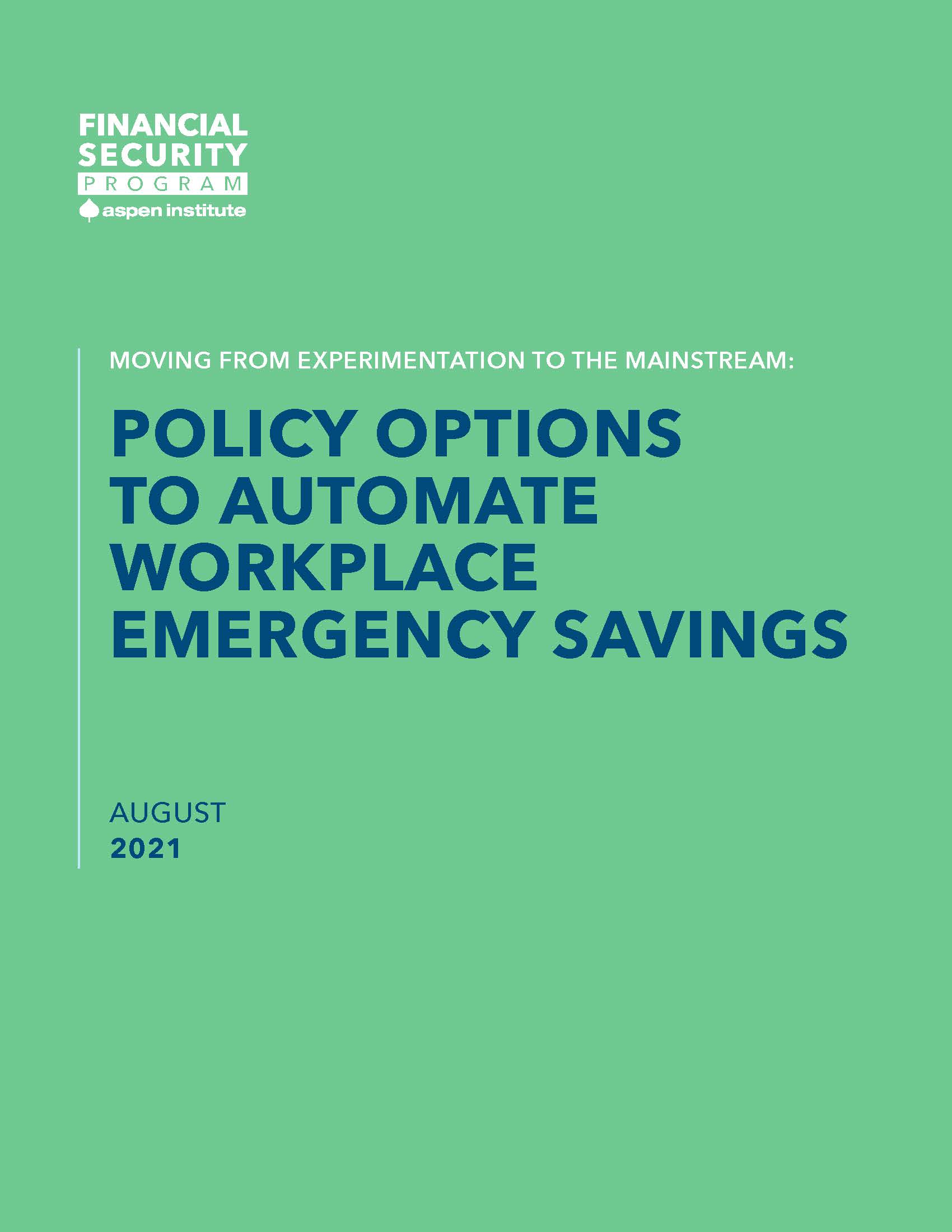Emergency savings were a particularly important lifeline for families during the economic crisis of COVID-19, with 73% of Americans reporting a reduction in their income during 2020. A recent survey conducted by the Aspen Financial Security Program, Morningstar, DCIIA, and NORC at the University of Chicago found that families who had emergency savings before the pandemic were much better able to maintain their financial health than those who did not. However, significant gaps in emergency savings by race and income were revealed, with a recent survey finding that 36% of Black and 28% of Hispanic workers reported having no emergency savings, compared to 24% of white households.
Employers are starting to recognize the value of offering payroll deduction emergency savings tools to workers, and several different models are emerging. Today, these models face a variety of regulatory barriers to automatic enrollment, which limits the potential for automatic workplace emergency savings to reach scale. Fortunately, there are a variety of policy options available to policymakers to reduce or eliminate those barriers.
In this brief we seek to illuminate policymakers’ opportunities to help make emergency savings both automatic and inclusive. The brief:
- Explores the design features critical to a successful emergency savings tool;
- Provides an overview of workplace emergency savings innovation in practice;
- Summarizes the policy barriers preventing employers and providers from making workplace emergency savings automatic; and
- Offers a set of policy options that can make automatic emergency savings available to everyone.
The Aspen Institute Financial Security Program thanks the Blackrock Charitable Fund for its generous support of this brief.


